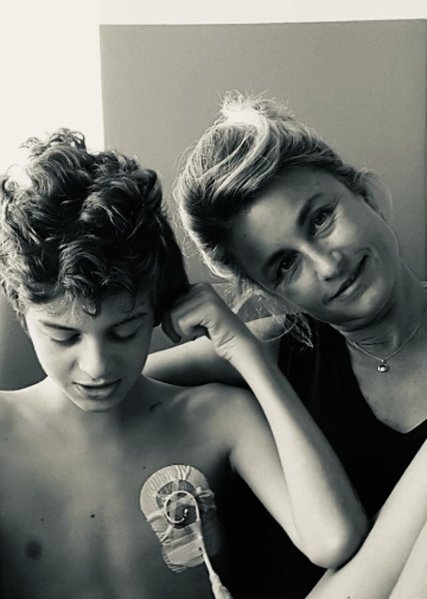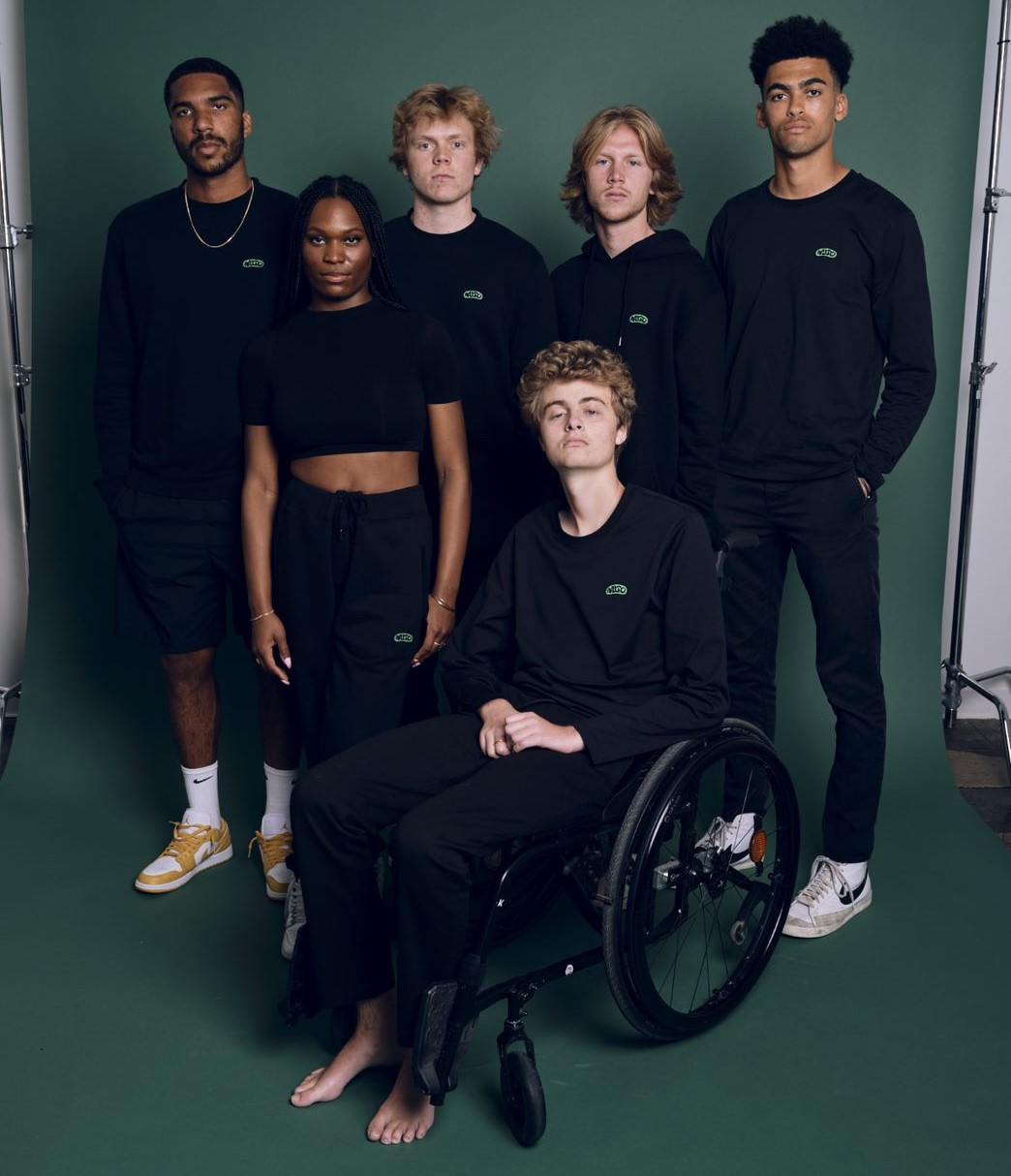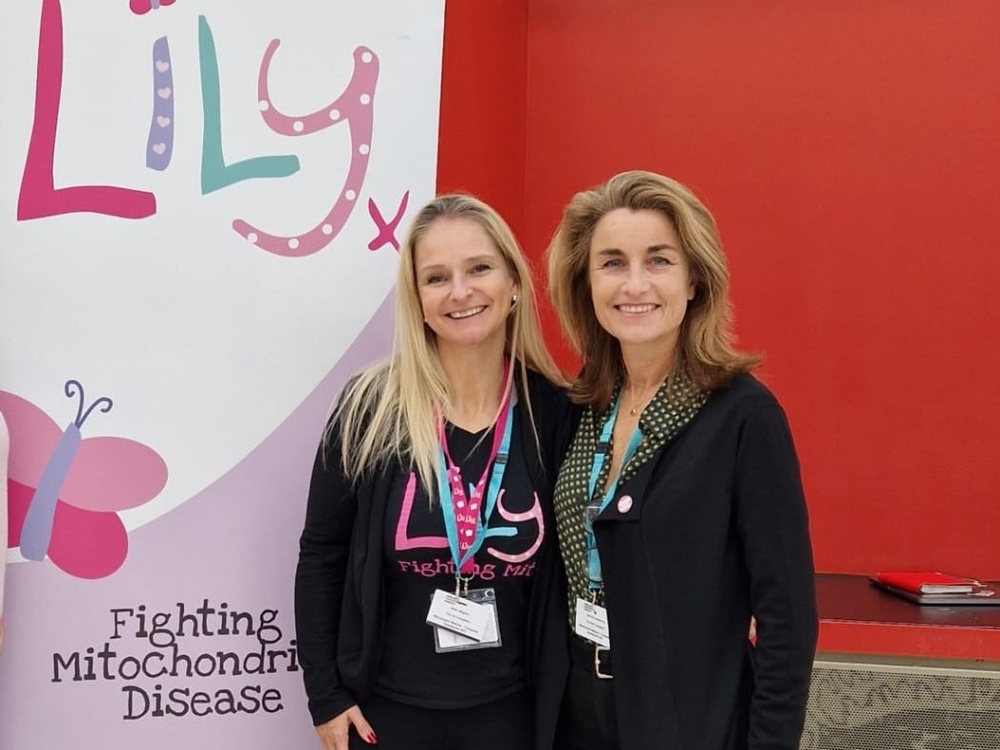A diagnosis that left the family in the dark
PolG disease is a genetic disorder that falls under the umbrella of mitochondrial diseases. It’s so rare that it's still not known how many patients there are currently around the world. So when Julie’s son, Frederik, was diagnosed back in 2016, the family found it almost impossible to find out anything about the condition, or what Frederik’s future might look like. For the next few years, as his health declined rapidly, they were fully occupied managing his symptoms along with their own grief and anguish.

As the months passed, and the family adjusted to this new normal, Julie embarked on a journey to speak to as many mito clinicians around the world as she could, to find out everything there was to know. And Julie knew exactly where to turn, since her father was a professor at Harvard Medical School and a doctor at Mass General Hospital in Boston. As she gradually gained access to knowledge and resource, she realised what an opportunity this could be to influence change.
This hunger for personal knowledge quickly turned into a burning desire to seek out and collate every piece of literature relating to PolG in order to find treatments and, ultimately, a cure for Frederik and other patients suffering from PolG. It led Julie and her husband Robert to speak to every PolG expert they could track down, and eventually led them to The Lily Foundation. They spoke a number of times with Alison Maguire, Head of Research and Finance, and one of the charity’s patrons, Professor Sir Doug Turnbull. That desire back then eventually grew into the idea to create a charitable organisation dedicated entirely to research into PolG disorders.
The seed began to grow
Over the next 12 months, guided by Professor Arnold Munnich, Frederik’s lead doctor, founder of the Imagine Institute for Genetic Diseases in Paris and one of the leading geneticists in the world, the team met regularly, discussing their venture and gradually adding the right expertise to the mix. The seed of a foundation had been planted, and now it was beginning to grow. Julie recalls the huge challenges they had to overcome to get the foundation up and running, and the vast learning curve they faced: “The biggest challenge was having to learn an entire new world, an entire new language, everything from the pure science to understanding registries to understanding the successes and failures of other foundations around the world, to IP and costs… the list just goes on.”
The PolG Foundation was finally established as a US public charity in 2021. Now came the really exciting part – giving the foundation a public image. Step forward Frederik. It was a conscious decision of the family’s to involve him, and as Creative Director he was responsible for designing the website, and the foundation’s logo. Once the website and Instagram feed went live, people could finally google ‘PolG’ and find results other than just a couple of published articles. Thanks to the foundation, PolG disorders have been given a global platform, new research is taking place, and research that might in the past have been shelved is being resurrected.
Frederik is still integral to the foundation today. Since its inception, he’s designed a range of ethically conscious mito streetwear, plus a ‘happy mito’ collection of clothing which showcases his sense of playfulness throughout the designs. Every piece is made from the highest quality, sustainably sourced materials and sold in fully recyclable packaging, with 100% of all proceeds going directly to the charity.

Julie speaks fondly of her son’s involvement with the foundation: “Of course, he’s incredibly aware of the challenges he faces, and the clock ticking, and other patients living like him, but he remains positive, and surrounds himself with humour and music, family and friends. His identity is not his illness, not by any stretch.”
She admits they’ve always been a very private family, so we asked her why she wanted to share her story: “Because we can give hope, we can raise awareness of this disease, not just PolG but all mitochondrial diseases, to help find treatments and eventually a cure.” From the beginning, the foundation’s mission was purely to advance research into treatments, and hopefully that cure, and they’ve stayed true to that. There are huge challenges ahead – for instance, even family members with the same mutations can manifest differently. But for Julie it’s always been about igniting the spark in clinicians and researchers, and keeping that momentum going with collaborations all across the globe.
A balancing act
This project hasn’t come without its compromises for Julie. As a mother, her priority is to spend as much time as she can with Frederik because, of course, time is precious for them. She’s frustrated that this leaves her with less time and energy to dedicate to the foundation. But she’s also always mindful of all the other PolG sufferers out there who need help – a number which may be far larger than we think.
So what next for the foundation? They’ve now received a number of high level – some ground-breaking – research proposals, and in the short term they’ll decide which projects to fund, from basic science to clinical trials. Then there’s the hosting of a PolG workshop later this year, hopefully with up to 17 cohort leaders from around the globe. And in the longer term, it’s all about collaboration, sharing of data, increased awareness and education, even a PolG registry, in order to keep moving the research forward. Julie’s dream is to one day be able to provide genetic testing kits to countries which don’t currently have access to them.
Julie will forever be grateful to The Lily Foundation, and in particular to Alison and Liz, who were instrumental in helping to set up The PolG Foundation, and who continue to offer ongoing and invaluable support to this day. Our two charities will always have a special connection, and we’re delighted to be working so closely, and so positively, with them to make advances in the field of PolG disorders.
You can visit The PolG Foundation’s website and sign up to their newsletter here, or follow them on Instagram @polgfoundation.

